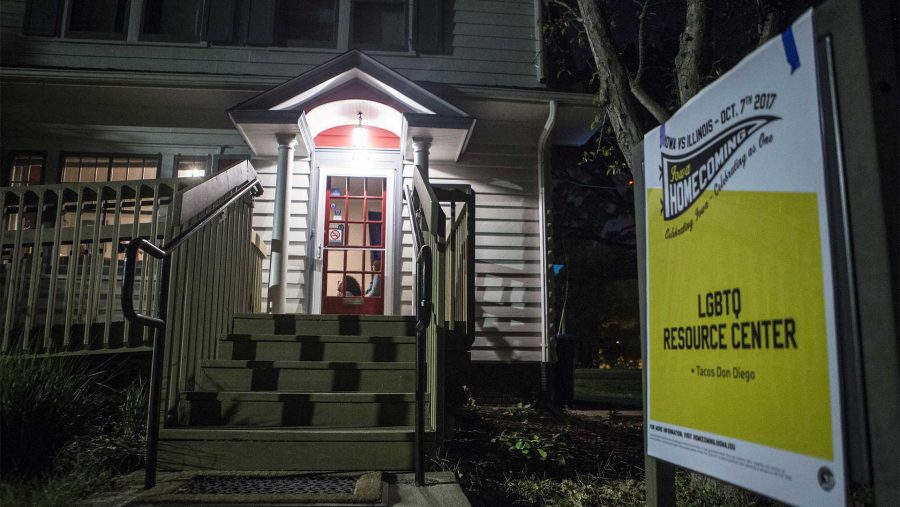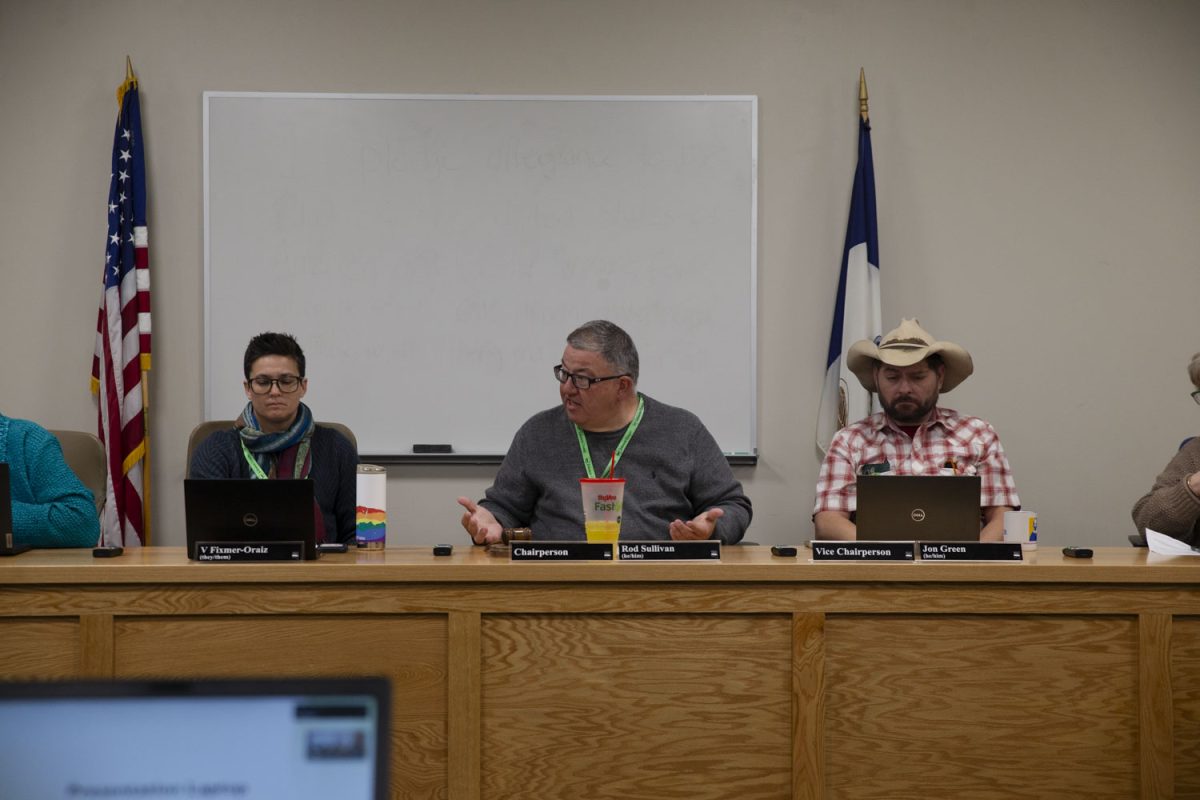In celebration of Latinx Heritage Month, the University of Iowa LGBTQ Cultural Center started October off with Queer Latinidad Monday evening, a conversation about the LGBT and Latinx identities.
The discussion aimed to bring to light the issue of the intersection of one’s ethnic, cultural, and racial identities and identifying as part of the LGBTQ community.
The event featured four panelists mediated by Jorge Guerra. Panelists described how being part of both the Latinx and LGBT communities have affected their lives. A Q&A session followed the discussion.
The main points discussed dealt with the struggles each panelist had combating a conservative Latinx culture while exploring their identity and coming out to family and friends.
“The major hurdle within the Latinx culture is the conservatism,” Guerra said.
In the discussion, one problem identified is that there are no direct translations for such words as “queer” from English to Spanish, making it hard for Latinx people who don’t speak much English to fully understand the fluidity of gender and sexual identity.
The language barrier is another added layer of obstacle for kids trying to discuss their identity with parents or older Latinx people.
“There are huge misunderstandings and miscommunications involving LGBT children who are also Latinx,” Guerra said.
Alongside the language barrier is the cultural tendency for Latinx people to view gender and sexuality as a two-sided system, not as a spectrum.
“One of the major hurdles in the Latinx culture is the traditionalism and looking at everything as binary,” Guerra said. “You’re either straight or you’re gay, you’re either a man or a woman, and there’s nothing in between.”
A fix to this issue is changing the way Latinx LGBTQ people are portrayed in mainstream media, he said.
Many Latinx people enjoy such media as telenovelas, but these shows often portray LGBTQ people as the comic relief, very rarely showing the reality of Latinx identifying LGBTQ persons, he said.
“A lot of the older generation is engrained or hooked on what is being seen on television,” Guerra said.
RELATED: LGBTQ history rich at the University of Iowa
If programs like these showed LGBTQ characters with partners, he said, the view may begin to shift.
Another issue discussed was how being a part of two marginalized groups affects one’s identity, particularly when one of those groups is not generally accepting of the other.
“When we think about the general idea of what it means to be LGBT, we focus exclusively on the sexuality and gender,” Gurerra said. “One of the major omissions of that conversation is looking at other intersections, such as race.”
Panel discussions like this are aimed to bring individuals together and recognize identities, and although many topics were touched on throughout the discussion, the overarching theme of the evening was acceptance.
“It brings in another layer of learning and togetherness, not just in their Latinx identity, but their identity as an LGBTQ person,” said Jennifer Jones, the coordinator of the LGBTQ Resource Center. “These types of panels help students feel safer and like they’re part of a community.”
This year’s Homecoming is focused on bringing all Hawkeyes in the community together.







